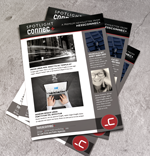In an environment of never-ending news cycles, minute-to-minute attention spans, intense competition for potential clients, and perpetual pressure for professional self-promotion, blogscan be an exceptional platform for lawyers or law firms to easily and immediately publish meaningful information that is both usable and digestible to viewers. New platforms – including blogs – necessitate that attorneys not only remain knowledgeable of liability concerns, but also the application of ABA and state bar association rules governing professional conduct in the online world. Because potential clients initiate contact with law firm Web sites, these sites have been found by some state bar ethics committees to constitute advertisements, and thus, they are governed by Model Rule 7.1, which governs communications concerning a lawyer’s services, and Model Rule 7.2, which governs advertising, as well as relevant state bar regulations governing attorney advertising.
Courts, however, have yet to reach a consensus on when a blog is or is not commercial speech. This is further complicated when state bar definitions of what constitutes an “advertisement” varies on a state-to-state basis. In 2012, Virginia became the first state to bring disciplinary charges against a lawyer for failure to apply the advertising rules to his blog. In Hunter v. Virginia State Bar, a criminal defense lawyer authored and maintained a blog on his firm’s website called “This Week in Richmond Criminal Defense” that mainly discussed publically available information pertaining to the firm’s successfully concluded cases. The Virginia Supreme Court affirmed a Virginia State Bar ruling that the attorney’s blog posts were unprotected commercial speech constituting misleading attorney advertisement of cumulative case results without a disclaimer, violating Virginia Rules of Professional Conduct 7.1 and 7.2, which govern attorney advertising, but that the attorney was not in violation of Virginia Rule of Professional Conduct 1.6, pertaining to disclosure of client information.
The court relied on four factors to determine whether the blog was commercial speech:
(1) the attorney’s motivation for the blog was partly economic;
(2) most of the posts pertained to the attorney’s favorable case results, and thus
advertised his lawyering skills;
(3) the blog was maintained on his law firm’s website rather than an independent site;
and
(4) the blog was non-interactive and did not allow for public discourse.
Though not inherently misleading, the majority found the blog posts had the potential to mislead unsophisticated persons into believing they were guaranteed to obtain the same favorable results from the attorney. Unlike Virginia, New York Rules of Professional Conduct Rule 1.0(A) defines “advertisement” as “any public or private communication made by or on behalf of a lawyer or law firm about the lawyer or law firm’s services, the primary purpose of which is for the retention of the lawyer or law firm.”
For a full analysis and better understanding of how the California Supreme Court has addressed above mentioned issues (so you know how to safely position your law firm blogging efforts and other online items as they arise), see our Premium Spotlight Newsletter offered monthly, by subscribing here.
![]()


